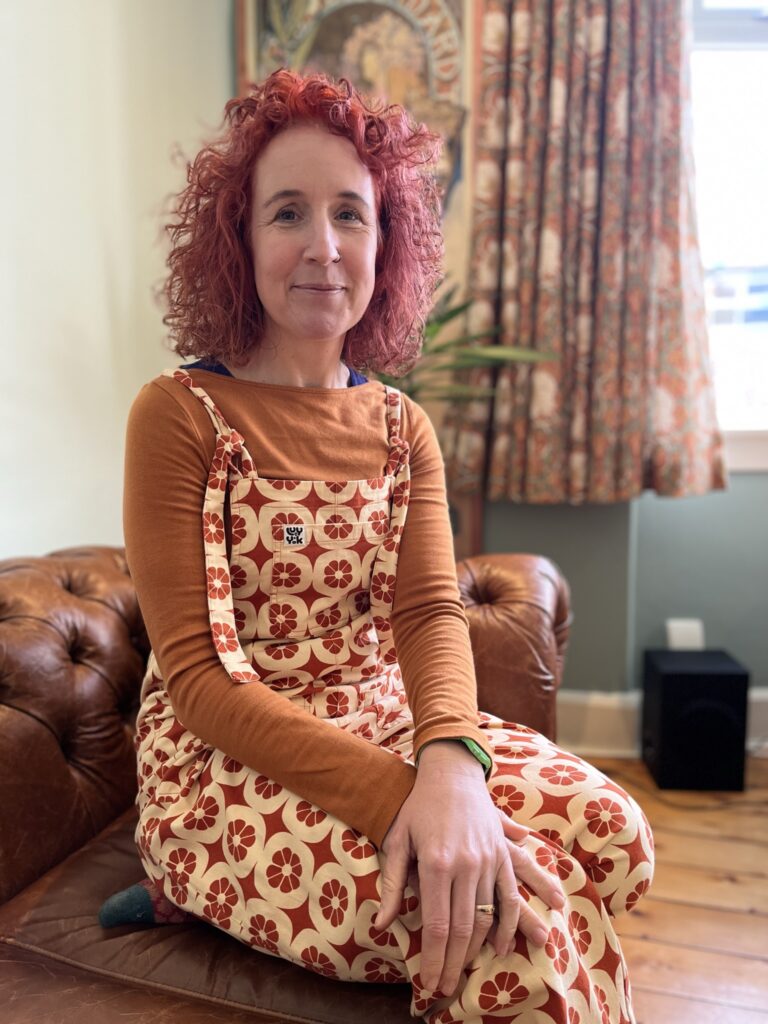A SCOTS cyclist who was hit by a car revealed she woke from a coma with no memory of her husband and children.
Emma Feesey, 48, suffered a brain injury after being struck as she cycled home from work.
The mum-of-two woke with few memories – she was even unable to draw a giraffe or work her mobile phone.
Now that she’s recovered, Emma, from Edinburgh, hopes sharing her journey will help other brain injury survivors embrace their new way of life.

She said: “The important thing is survivors know that no matter how strange or hard things seem, life gets better.”
Emma was cycling home from her work as a criminal justice social worker in August 2017 when a car ploughed into her at Deans Roundabout in West Lothian.
Emma – who was wearing a helmet – sustained a subarachnoid haemorrhage and a midline shift after her head struck the ground.
She was treated at the Western General for three days before being moved to the Astley Ainslie Hospital which specialises in serious injuries.
But, despite waking and feeling good Emma knew things weren’t right.
Speaking ahead of her guest speech at the Edinburgh Head Injury Information Day, Emma said: “Someone asked where I lived – I knew the street but not the number.
“I was asked if I was married and I didn’t know. I was asked if I had children and again had no idea.”
In fact, Emma was supported by husband Colin, 49, and their two daughters Rosa, 26, and Zora, 24.
Thankfully, Emma’s memory returned over the coming weeks.
Emma added: “Colin was really worried – firstly to think I died and then to realise I had no memory of him and the girls.
“Then when I remembered my husband and my daughters I wanted them there all the time.
“I’d think ‘I love Colin. Colin should be here. I want to see Colin.’ There is a simplicity to your thoughts when going through trauma.
“I felt physically okay and I only knew I had a brain injury because people kept telling me I had one.”
Emma’s recovery brought with it a host of challenges.
She was unable to sketch simply objects and she failed to recognise her own mobile phone.
She continued: “Everything was very slow and detached.
“I remember finding a ‘communication device’ near my bed. I now know it was my phone but at the time it was just a thing I thought would help me document things.
“It took me ages to type anything – I just kept taking photos of my own face – and when I did finally manage I unknowingly posted it to Facebook which caused a commotion.
“But I was most frustrated when I was asked to draw a clock and a giraffe.
“With the clock I drew the number one, put in a few other numbers and drew a shape around them and with the giraffe I drew it like a horse with a long neck – but the hospital wasn’t satisfied.
“It was about three weeks for everything to click into place. The constant questions and tasks are exhausting but they are obviously part of the process to get your brain working and I’m thankful to have come through things.”
Emma is now retired on medical grounds but hosts a yoga class and is focused on bringing positivity to her life and the lives of others.
She has even been able to return to cycling after overcoming PTSD-related flashbacks.
Emma said: “I’ve learned through all this – especially during the pandemic – that what matters is being happy, healthy and doing good things.
“I look after myself and focus on my yoga and other workshops and I still cycle when I can.
“The hardest part is simply adjusting to a new life. Getting to know and embrace your new trajectory is something an acquired brain injury survivor will at some point have to deal with.
“But this is me and I have a nice life. I’m generally – and genuinely – happy in my world.
“If I could offer any advice to anyone it’s to not caveat yourself or apologise for what you’ve survived and experienced. Caveats might help others but not yourself.
“Brain injury survivors shouldn’t need to caveat themselves so the key is to help people understand everyone is different and has different things going on in their lives.”
